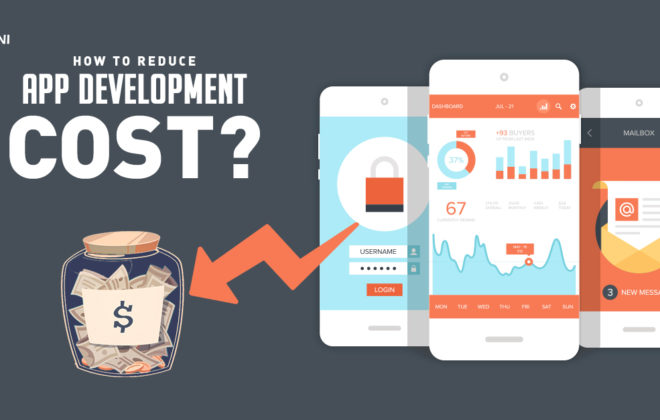Key Areas of Security Testing for your Next Mobile App
Testing is an inseparable part of mobile app development. Surprisingly, a considerable number of app owners and developers give it a miss, ultimately failing to achieve success with an otherwise promising app. At the same time, there are individuals and organizations that conduct performance testing, but completely ignore security testing of mobile apps. There are some very simple reasons that explain the importance of testing mobile apps against a variety of security issues:
- Mobile apps reside in mobile devices which already store or have access to owner’s’ personal information.
- Considering that Bring Your own Device (BYOD) is a booming trend at workplaces, insecure apps stored in personal mobile devices of employees can be serious threats to enterprise data.
- Of course, an insecure app is overall a poor performing app and should easily surrender to the highly secure apps in their respective niches.
Apart from understanding the importance of security testing during mobile application development, it is equally important to recognize various areas it must be accomplished in. Let’s discuss them now.
Multi Environment Security Testing
If you are developing a hybrid app that would run on multiple mobile devices and platforms (Android, iOS, Windows etc.), testing for multi-environment scenario goes without saying. This is because security-related vulnerabilities that might not exist for one device or platform may be present for the others.Set the goals well in advance and simultaneously test for every possible environment it would run on.

Testing for Common Security Attacks
Viruses, Trojans, malware, spywares and other malicious programs are the very first threats that would possible attack your app. You must pay heed to carry out automatic security tests against each of these possibly harmful risks that are quite common. Take clues from the recent reports of malicious attacks on popular apps.
Security Testing for App Data at Various Stages
The data generated by your app would undergo a lot of functions and procedures and its protection at every level or stage must be ensured through prior security testing. Here’s what you need to know when developing mobile apps:
- Data Storage Testing: Is the data storage secure? Does it reside under the tight encryption layer?
- Data Transition testing: Where does the data flow to? Are all data transit routes secure and encrypted? Is transport layer sufficiently protected?
Session Handling Testing
Are you more focused on impressing app users with long or non-expiring sessions? It’s true that mobile users really like to use apps without the need of logging in again and again, but it might raise the possible security threats. This type of improper session handling or management must be tested to find a middle solution. One good idea is to test re-authentication functions when users wish to use the critical features like purchase.
Testing Against Possible Injections
SQL injections have emerged as real serious threats to app security as these can be used in the form of queries and requests for retrieving information from apps’ databases. These are also used to carry out database errors or also to manipulate or delete database records. During mobile app development, make sure that testing is done to validate every data input.
Testing Both Client and Server Sides
Mobile app security testing is equally important for the client as well as the server side. Cross-site scripting, back-end data leakage, and weak server-side controls are few of situations that put app security at stake. Here are few things to do:
- Test against client-side script injections
- Analyze and validate all backend API calls
- Test whether data is leaking to log files or via app notifications
Few Additional or Obvious Areas of Importance
- Testing authorization modules to ensure impenetrable authentication procedures
- Testing encryption level for everything from passwords to credit card information
- Testing error handling procedures to ensure that only custom error pages are displayed without giving away any additional information
- Testing the third-party software packages, libraries, and components to be integrated with apps
- Finally, continuous app security testing must be done to ensure that the existing and future versions are secure against new threats and risks.
Experts in mobile app development have access to popular security testing tools that entertain the specific requirements of different types of applications. If your new app holds a lot of value for your business or profits, make it go through rigorous security testing as it would definitely add value to its worth.
You may also like
- Reasons Why You Should Host Your Next Application on Cloud
- Increasing Trends of Mobile v/s Desktop Use
- How MVPs Fit the Process of Mobile App Development?
Subscribe For Updates
Categories
- Accountant
- AI
- Automation
- Awards and Recognitions
- Blue Collar Staffing
- Burnouts
- Campus Recruiting
- Cloud
- Co-Ops agreements
- Company Culture
- Compliance
- contingent workforce
- Contingent Workforce
- COVID-19
- Cyber Security Staffing
- Data Strategy
- Digital Transformation
- direct sourcing
- Distributed Workforce
- Diversity
- Diversity & Inclusion
- Economy
- Events & Conferences
- fleet industry
- Gig Economy
- Girls in Tech
- Global Talent Research and Staffing
- Government
- Healthcare
- Healthcare Staffing
- Hiring Process
- Hiring Trends
- Home Helathcare
- HR
- HR Practices
- HR Tech
- IT
- Labor Shortages
- Life Science
- Local Governments
- News
- Nursing
- Payroll Staffing
- Public Sectors
- Recruiting
- Remote Work
- Skill Gap
- SMB Hiring
- Snowflake
- Staffing
- Staffing Augmentation
- Staffing Challenges
- Talent ROI
- Tech Staffing
- Technology
- Tips & tricks
- Total Talent Management
- UI/UX Design
- Uncategorized
- Veteran Staffing
- Veterans Hiring
- Veterans Hiring
- Workforce Management
Recent Posts
- Automation in Recruiting: From Chatbots to Predictive Screening
- Gig Economy Expansion: The Impact on Talent Pools and Business Models
- Skills-Based Hiring: Why Credentials Alone Don’t Cut It in 2025
- Procurement 3.0: AI & Intelligent Automation in 2025
- Q3 Is Here: Is Your Contingent Workforce Strategy Falling Behind?
Newsletter
Archive
- September 2025
- August 2025
- June 2025
- April 2025
- March 2025
- December 2024
- November 2024
- October 2024
- September 2024
- August 2024
- July 2024
- June 2024
- May 2024
- April 2024
- March 2024
- February 2024
- January 2024
- December 2023
- November 2023
- October 2023
- September 2023
- August 2023
- July 2023
- June 2023
- May 2023
- April 2023
- March 2023
- February 2023
- December 2022
- November 2022
- October 2022
- September 2022
- August 2022
- July 2022
- June 2022
- November 2021
- October 2021
- September 2021
- August 2021
- July 2021
- June 2021
- May 2021
- April 2021
- March 2021
- February 2021
- January 2021
- December 2020
- November 2020
- October 2020
- September 2020
- August 2020
- July 2020
- June 2020
- May 2020
- April 2020
- March 2020
- February 2020
- January 2020
- December 2019
- November 2019
- October 2019
- September 2019
- August 2019
- July 2019
- June 2019
- May 2019
- January 2019
- December 2018
- November 2018
- October 2018
- September 2018
- August 2018
- July 2018
- June 2018
- May 2018
- April 2018
- March 2018
- February 2018
- January 2018
- December 2017
- November 2017
- October 2017
- September 2017
- August 2017
- July 2017
- June 2017
- May 2017
- November 2016
- October 2016



